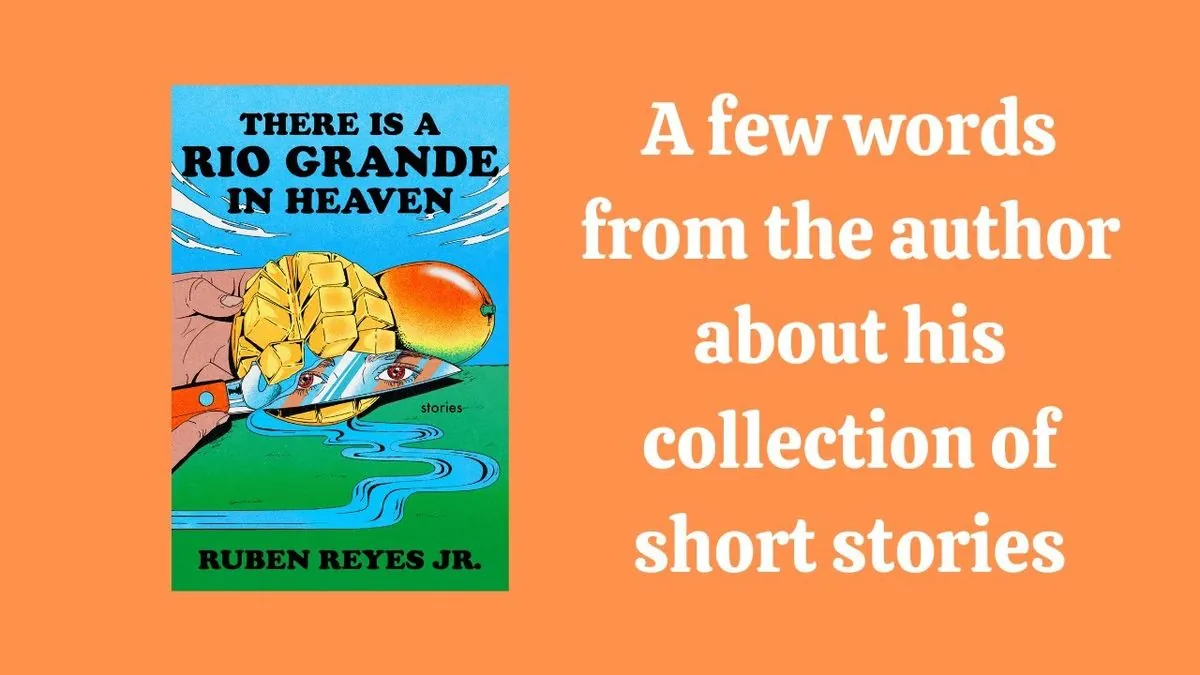Ruben Reyes Jr.'s Debut Collection Explores Immigrant Experiences Through Surreal Lenses
Ruben Reyes Jr.'s "There Is a Rio Grande in Heaven" offers a diverse array of stories blending genres and styles to illuminate Central American lives. The standout piece employs a unique choose-your-own-adventure format.

Ruben Reyes Jr., son of Salvadoran immigrants, presents a captivating debut short story collection that delves into the complex experiences of Central American immigrants and their descendants. "There Is a Rio Grande in Heaven" showcases Reyes's versatility as a writer, employing various genres and narrative techniques to explore themes of identity, displacement, and the search for belonging.
The collection spans multiple time periods and incorporates elements of speculative fiction, science fiction, and alternative history. Reyes's stories often feature surreal premises that serve as metaphors for the immigrant experience. For instance, one tale depicts a grandmother transforming into a marionette puppet, while another envisions children at the U.S.-Mexico border being turned into cyborgs for wealthy American families.
These imaginative scenarios allow Reyes to examine the challenges faced by immigrants and their children from unique perspectives. The author draws on El Salvador's complex history, including the civil war that lasted from 1979 to 1992, to provide context for his characters' struggles. By blending historical elements with futuristic and fantastical concepts, Reyes creates a rich tapestry that reflects the multifaceted nature of the immigrant experience.

The standout piece in the collection is "Variations on Your Migrant Life," which employs a choose-your-own-adventure format reminiscent of the popular book series that began in 1979. This innovative approach allows readers to navigate the difficult choices faced by immigrants, highlighting the often impossible decisions and their consequences. The story's structure mirrors the unpredictable and challenging nature of the immigrant journey, where each choice can lead to unforeseen outcomes.
While some stories in the collection may not reach the same heights as "Variations on Your Migrant Life," Reyes's ambition and willingness to experiment with form and content are commendable. His work touches on various aspects of Salvadoran culture and history, from the guerrilla movements of the past to the country's adoption of the U.S. dollar as its official currency in 2001.
"Reyes leads the reader through singular, surreal experiences to a deeper, truer understanding of the real lives of Central Americans; more specifically, Salvadoran men and women and children, whether citizens, politicians, guerrilleros or immigrants."
Reyes's stories often blend humor with tragedy, reflecting the complex emotions associated with the immigrant experience. His characters grapple with issues of identity, family relationships, and the struggle to find a place in a new society while maintaining connections to their cultural roots.
The collection also touches on broader themes such as climate change and technological advancement, imagining scenarios where Central American countries colonize Mars or where cyborg technology becomes a reality. These speculative elements serve to highlight the resilience and adaptability of immigrant communities in the face of global challenges.
While some readers may find certain stories in the collection less impactful than others, Reyes's talent as a storyteller shines through in his ability to create memorable characters and scenarios that resonate with the immigrant experience. His work contributes to the growing body of literature that explores the diverse perspectives of Central American immigrants and their descendants in the United States.
"There Is a Rio Grande in Heaven" ultimately offers a unique and thought-provoking exploration of the immigrant experience, blending reality and fantasy to shed light on the challenges, hopes, and resilience of those who leave their homelands in search of a better life.


































